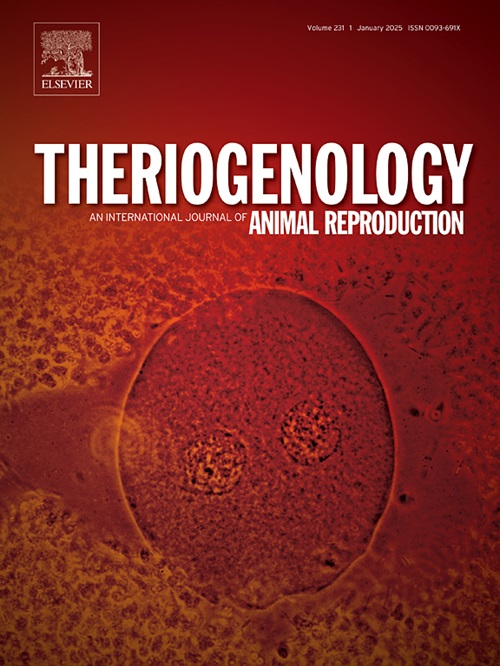Equol promotes the in vitro maturation of porcine oocytes by activating the NRF2/KEAP1 signaling pathway
Published:22 November 2024
DOI: 10.1016/j.theriogenology.2024.11.015
Sai Xiao, Ke Peng, Xingwei Liang
Abstract
In vitro maturation (IVM) plays a critical role in embryo production. However, the quality of IVM oocytes often suffers from oxidative stress due to the excessive accumulation of ROS. Equol, a metabolite of soybean flavonoids, exhibits potent antioxidant activity. This study investigated the effects of equol on porcine oocyte IVM. Our findings showed that treatment with 5?μM equol significantly enhanced cumulus cell expansion and the first polar body extrusion in porcine oocytes. Moreover, equol also improved the subsequent embryonic development capacity of the oocytes after parthenogenetic activation. Additionally, equol improved mitochondrial function by increasing mitochondrial content, membrane potential, and ATP levels, while promoting lipid droplet accumulation in oocytes. Equol also reduced DNA damage and early apoptosis, with an associated upregulation of BCL2 and downregulation of BAX expression. Notably, equol decreased ROS levels, likely through activation of the NRF2/KEAP1 antioxidant pathway, leading to increased expression of HO-1, CAT, GPX1, and SOD. In conclusion, equol improves porcine oocyte IVM by mitigating oxidative stress via activation of the NRF2/KEAP1 pathway, offering a potential strategy for optimizing the IVM system in porcine oocytes.





